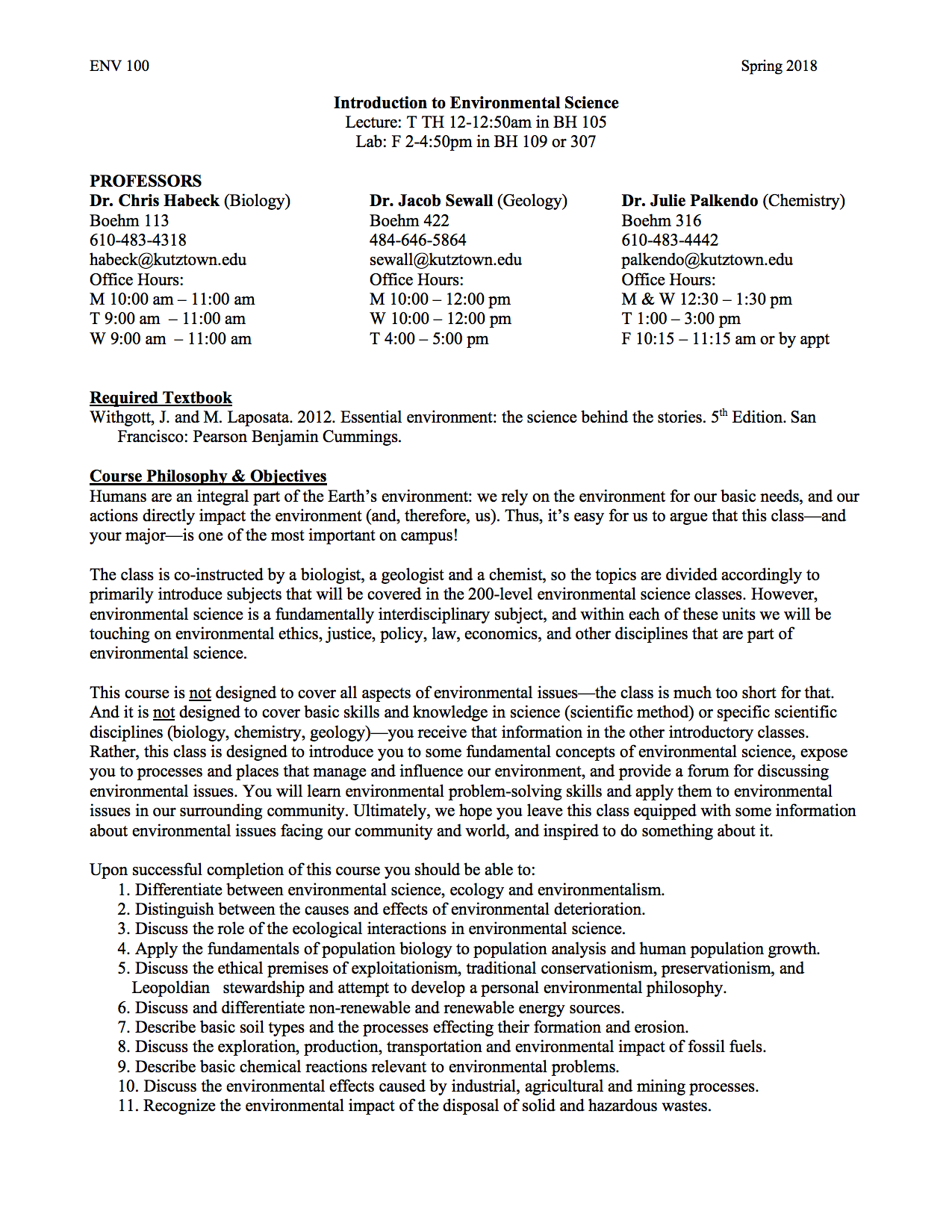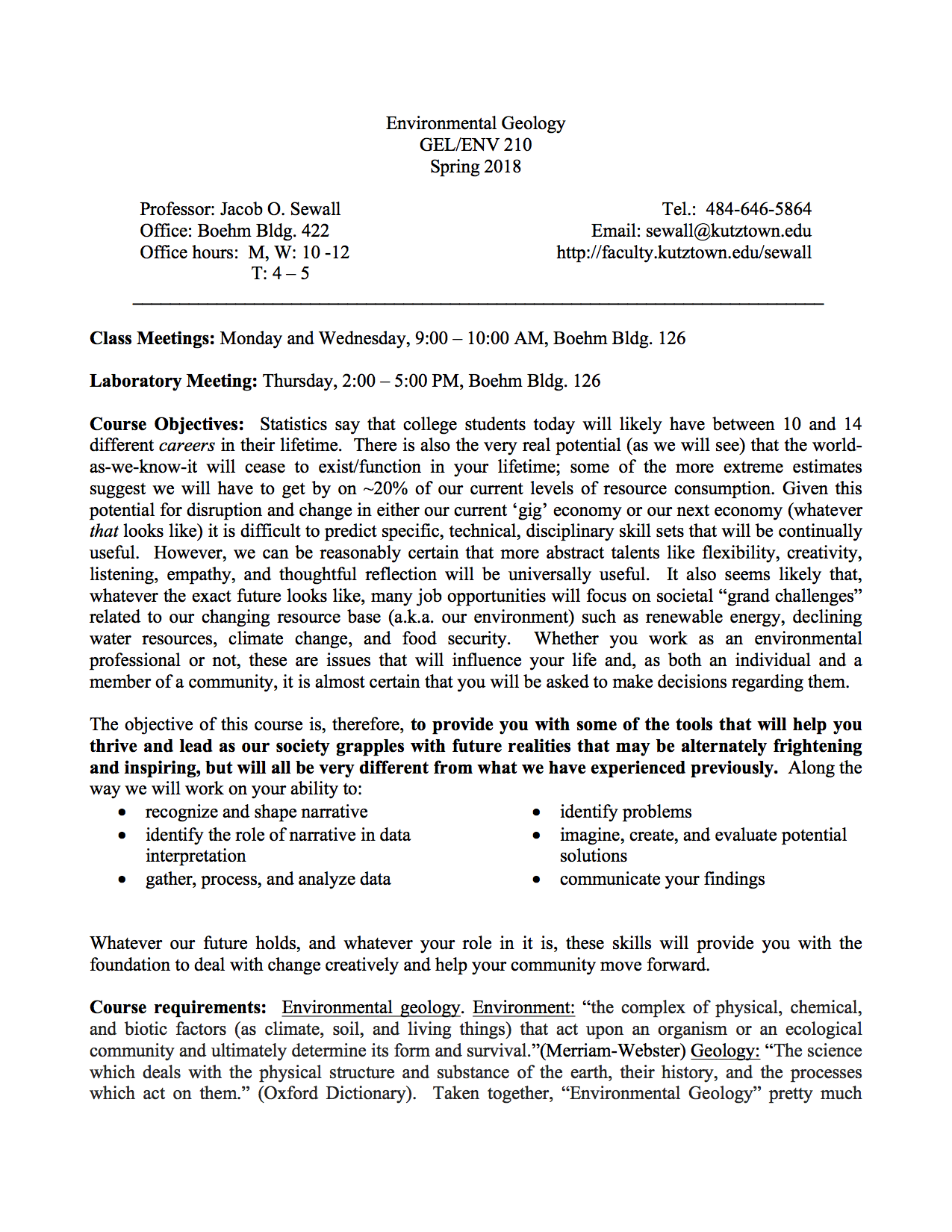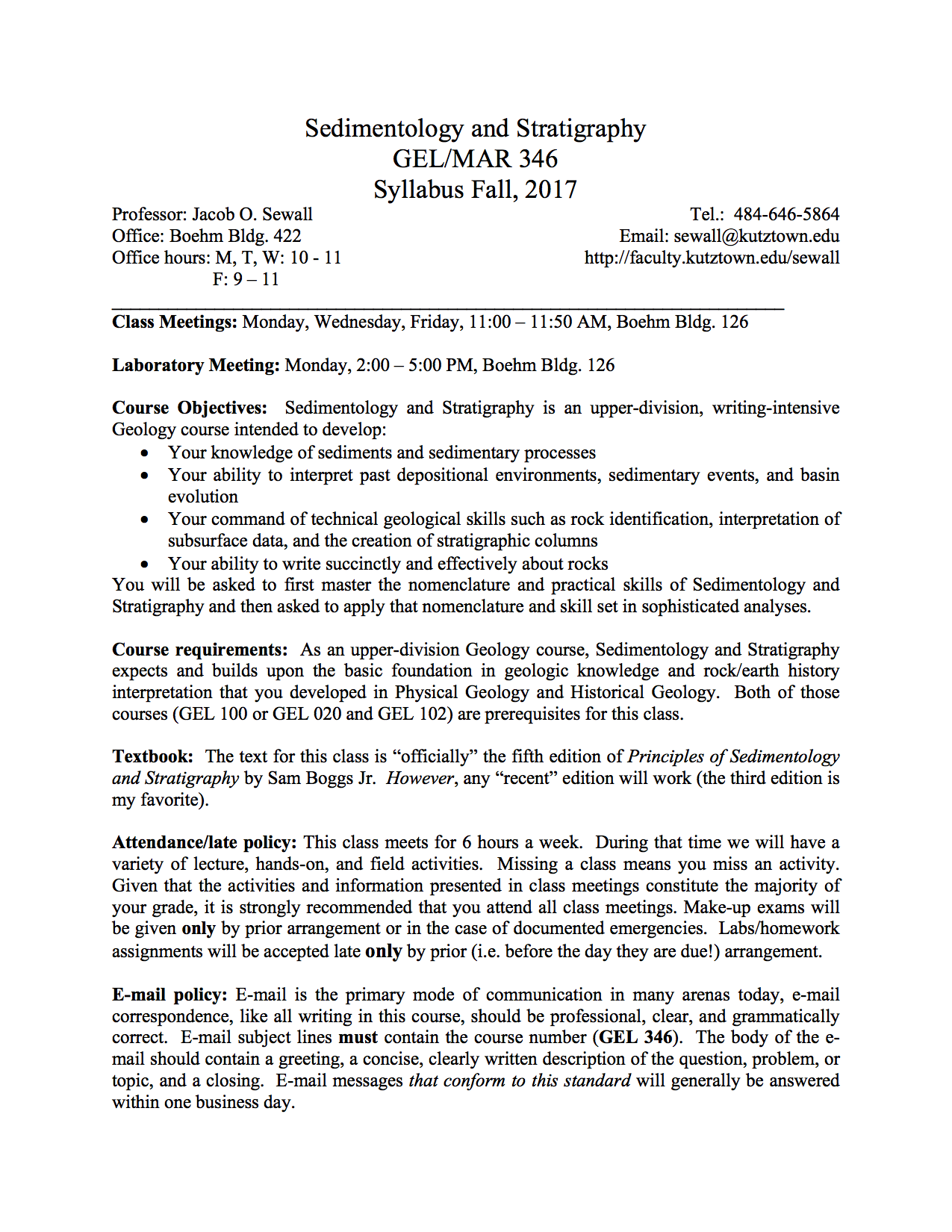Courses that I regularly teach
Introduction
to Environmental Science
- ENV 100
ENV 100 is the kickoff course for our Environmental Science degree. It is team taught by me, Dr. Chris Habeck (Ecologist), and Dr. Julie Palkendo (Analytical Chemist). Students in ENV 100 learn to look at environmental challenges from an integrated, multidisciplinary perspective that starts from the ground and moves up through life (including human civilization) into the atmosphere and beyond. All students in ENV 100 participate in the interdisciplinary Field Boundary project. This project is focused on understanding the current condition and history of agricultural field margins in the valley. As relatively undisturbed vertical profiles from subsoil to the upper canopy, those margins may provide insights into the state and function of soils and biological communities pre-mechanized agriculture and, possibly, pre-European colonization.
Environmental Geology - GEL/ENV 210
Environmental Geology focuses on our physical planet as the foundation that shapes our surroundings, our lives, our societies, and, ultimately, our survival. We recognize that the Earth is currently heavily influenced by human actions and that this is likely to continue in the future as we live out the [currently unofficial] geological epoch of the Anthropocene. We also recognize that, as a human-influenced time period, the dominant processes, themes, and results of the Anthropocene are a matter of choice. Through extensive readings, discussions, and meta-analyses, we first develop an understanding of the current choices and storylines dominating Earth. We then look at ways to change our narrative and perspective, and students embark on an original project that focuses on working to develop a future for Earth and human thriving that they deem acceptable.
Sedimentology and Stratigraphy - GEL/MAR 346
Sedimentology and Stratigraphy is a whirlwind tour through a small handful of geological disciplines. In addition to the obvious “Sedimentology” and “Stratigraphy,” students learn Sedimentary Petrology, touch on Basin Analysis, and develop their skills in writing about rocks. All of these pieces help students learn the core of Geology, translating what we can see into what we would like to know, effectively understanding and then communicating the stories that the rocks tell us. In this course, all students complete an original research project from start (posing a question) to finish (presenting a poster). Research projects are focused in the Kutztown University Ronald R. Rhein Environmental Study Area to maximize independent access and student time spent as scientists. It is not a requirement, but many students go on to present their project at a regional or national Geological Society of America Meeting.
ENV 100 is the kickoff course for our Environmental Science degree. It is team taught by me, Dr. Chris Habeck (Ecologist), and Dr. Julie Palkendo (Analytical Chemist). Students in ENV 100 learn to look at environmental challenges from an integrated, multidisciplinary perspective that starts from the ground and moves up through life (including human civilization) into the atmosphere and beyond. All students in ENV 100 participate in the interdisciplinary Field Boundary project. This project is focused on understanding the current condition and history of agricultural field margins in the valley. As relatively undisturbed vertical profiles from subsoil to the upper canopy, those margins may provide insights into the state and function of soils and biological communities pre-mechanized agriculture and, possibly, pre-European colonization.
Environmental Geology - GEL/ENV 210
Environmental Geology focuses on our physical planet as the foundation that shapes our surroundings, our lives, our societies, and, ultimately, our survival. We recognize that the Earth is currently heavily influenced by human actions and that this is likely to continue in the future as we live out the [currently unofficial] geological epoch of the Anthropocene. We also recognize that, as a human-influenced time period, the dominant processes, themes, and results of the Anthropocene are a matter of choice. Through extensive readings, discussions, and meta-analyses, we first develop an understanding of the current choices and storylines dominating Earth. We then look at ways to change our narrative and perspective, and students embark on an original project that focuses on working to develop a future for Earth and human thriving that they deem acceptable.
Sedimentology and Stratigraphy - GEL/MAR 346
Sedimentology and Stratigraphy is a whirlwind tour through a small handful of geological disciplines. In addition to the obvious “Sedimentology” and “Stratigraphy,” students learn Sedimentary Petrology, touch on Basin Analysis, and develop their skills in writing about rocks. All of these pieces help students learn the core of Geology, translating what we can see into what we would like to know, effectively understanding and then communicating the stories that the rocks tell us. In this course, all students complete an original research project from start (posing a question) to finish (presenting a poster). Research projects are focused in the Kutztown University Ronald R. Rhein Environmental Study Area to maximize independent access and student time spent as scientists. It is not a requirement, but many students go on to present their project at a regional or national Geological Society of America Meeting.


